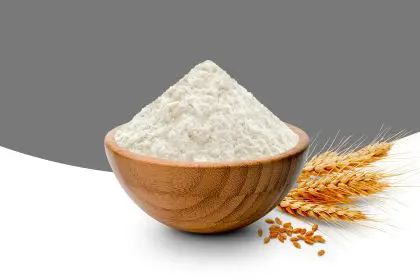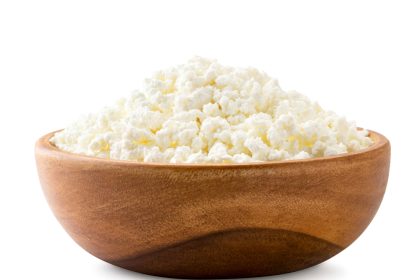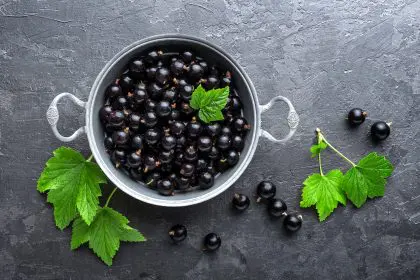Protein does far more for your body than simply building muscle. This essential nutrient plays a vital role in maintaining a thriving digestive system. While most people focus on protein for fitness goals, its impact on gut health remains one of nutrition’s most overlooked benefits.
The connection between protein and digestive wellness works through multiple pathways. Protein provides the building blocks needed to maintain the cells lining your digestive tract. These cells replace themselves rapidly, requiring constant nutritional support to function properly. Additionally, certain protein-rich foods contain compounds that nurture beneficial bacteria in your microbiome.
For anyone looking to improve digestive comfort, reduce bloating, or support overall wellness, incorporating strategic protein-rich snacks offers a practical daily solution. The key lies in selecting options that deliver both quality protein and additional gut-supporting nutrients.
Why your gut microbiome craves protein
Your digestive tract contains trillions of bacteria that influence everything from digestion to immunity and even mood. These microscopic allies thrive when provided with the right nutritional environment. Protein serves as an essential component of this environment in several ways.
Certain proteins, particularly those containing specific amino acid patterns, act as food for beneficial bacteria species. These bacteria then produce beneficial compounds that maintain intestinal health and function. Without adequate protein, these bacteria cannot perform their supportive functions optimally.
Additionally, protein molecules help maintain the physical barrier between your digestive tract and bloodstream. This barrier prevents inappropriate substances from entering circulation while allowing nutrients to pass through. A well-maintained intestinal barrier reduces inflammation and digestive discomfort.
The immune cells that patrol your digestive tract also rely heavily on protein. These specialized cells require constant protein replenishment to effectively identify and neutralize potential threats. By providing adequate protein, you support this crucial defense system.
The remarkable gut-protein connection
When selecting protein snacks for gut health, consider not just the protein content but also complementary nutrients that enhance digestive wellness. Fiber works synergistically with protein to create an optimal environment for beneficial bacteria. Similarly, certain fats support the absorption of nutrients and reduce intestinal inflammation.
The timing of protein consumption also matters. Spacing protein intake throughout the day helps maintain a steady supply of amino acids for digestive tissues and immune cells. This approach proves more effective than consuming most of your protein in a single meal.
For those experiencing digestive sensitivity, the source and preparation of protein can make a significant difference. Some individuals find certain plant proteins gentler than animal sources, while others may benefit from fermented protein foods that contain beneficial bacteria and partially broken-down proteins.
Greek yogurt: the probiotic powerhouse
Among protein sources, Greek yogurt stands as a digestive superstar. A single cup delivers approximately 20 grams of high-quality protein alongside billions of beneficial bacteria. These probiotic organisms directly colonize your digestive tract, supporting healthy digestion and immune function.
The protein in Greek yogurt also contains all essential amino acids your body needs, making it a complete protein source. The specific proteins found in dairy, particularly casein, digest slowly, providing a sustained release of amino acids that support gut cell regeneration.
For maximum digestive benefits, choose varieties labeled with “live and active cultures.” These contain viable probiotic strains that survive the journey through your digestive system. Avoid options with added sugars, which can feed less beneficial bacteria species. Instead, add sweetness with fresh fruit or a drizzle of honey, which contains prebiotic compounds.
Edamame: plant protein perfection
For plant-based protein lovers, edamame offers exceptional nutritional value. These young soybeans deliver 9 grams of protein per half cup, along with 4 grams of fiber. This fiber-protein combination creates the ideal environment for beneficial gut bacteria to flourish.
The fiber in edamame contains both soluble and insoluble types, each playing distinctive roles in digestive health. Soluble fiber forms a gel-like substance that slows digestion and feeds beneficial bacteria. Insoluble fiber adds bulk to digestive contents, supporting regular bowel movements and preventing constipation.
Edamame also contains compounds called isoflavones that may reduce intestinal inflammation and support the growth of beneficial bacteria species. These naturally occurring plant compounds have been linked to improved digestive comfort and reduced bloating in some individuals.
Enjoy edamame lightly steamed with a sprinkle of sea salt for a satisfying snack. Alternatively, add them to salads or grain bowls for a protein boost. They can be purchased fresh or frozen, making them a convenient option to keep on hand.
Cheesy mushrooms: umami satisfaction
This savory snack combines the digestive benefits of fungi with the protein power of cheese. Button mushrooms contribute a modest 3 grams of protein per serving, while the cheese adds approximately 7 grams, creating a satisfying 10-gram protein snack.
Mushrooms contain unique fibers called beta-glucans that nourish beneficial gut bacteria and support immune function. These special fibers have been shown to reduce intestinal inflammation and improve digestive comfort. Additionally, mushrooms contain prebiotic compounds that serve as food for probiotic bacteria.
For an extra digestive boost, expose your mushrooms to sunlight for 15 minutes before cooking. This natural process converts compounds in the mushrooms to vitamin D, which plays a crucial role in maintaining intestinal barrier function and reducing inflammation.
To prepare this simple snack, clean button mushrooms, remove stems, and fill caps with shredded cheddar cheese. Bake until the cheese melts and the mushrooms become tender. For additional flavor and digestive benefits, add a sprinkle of thyme or rosemary, herbs known for their carminative (gas-reducing) properties.
Protein-packed oatmeal: morning gut support
Oatmeal offers the perfect canvas for creating a protein-rich, gut-friendly breakfast or snack. While oats themselves provide modest protein (about 5 grams per half cup), preparing them with milk instead of water boosts the protein content to approximately 13 grams per serving.
The true digestive magic of oatmeal comes from its beta-glucan content, a special type of soluble fiber that forms a gel-like substance in your digestive tract. This gel slows digestion, keeps you feeling full, and creates the perfect environment for beneficial bacteria to thrive.
For maximum protein content, prepare your oatmeal with dairy or soy milk, both of which contain complete proteins. After cooking, enhance both flavor and nutrition by adding protein-rich toppings like nuts, seeds, or a spoonful of Greek yogurt.
The combination of slow-digesting carbohydrates, soluble fiber, and protein makes oatmeal particularly effective at stabilizing blood sugar levels. This stability reduces digestive stress and helps maintain the proper balance of gut bacteria throughout the day.
Almonds: the portable protein solution
These convenient nuts pack approximately 6 grams of protein per ounce (about 23 almonds), making them an ideal on-the-go snack for digestive wellness. Their protein content combines with healthy fats and fiber to support gut health through multiple mechanisms.
The fiber in almonds acts as a prebiotic, feeding beneficial bacteria in your digestive tract. These bacteria then produce short-chain fatty acids that nourish the cells lining your intestines and reduce inflammation. One particular fatty acid, butyrate, plays a crucial role in maintaining the integrity of your intestinal barrier.
Almonds contain special cell wall structures that protect a portion of their nutrients from digestion in the small intestine, allowing these compounds to reach the large intestine where they support beneficial bacteria growth. This property makes almonds particularly effective as a prebiotic food.
For maximum digestive benefits, choose raw or dry-roasted almonds without added oils or salt. If raw almonds prove difficult to digest, try soaking them overnight in water, which deactivates certain compounds that can cause digestive discomfort in sensitive individuals.
Fish fingers: omega-rich protein
This homemade version of a childhood favorite delivers approximately 24 grams of high-quality protein per serving, along with anti-inflammatory omega-3 fatty acids that support digestive wellness. Fish protein provides all essential amino acids in highly bioavailable forms, making it particularly efficient for rebuilding digestive tissues.
The omega-3 fatty acids in fish help reduce intestinal inflammation and support the integrity of the intestinal barrier. These beneficial fats have been shown to alter the composition of gut bacteria in favorable ways, increasing the proportion of anti-inflammatory species.
To prepare healthier fish fingers, cut white fish fillets like cod or haddock into strips, dip in beaten egg, coat with whole grain breadcrumbs mixed with herbs, and bake until golden. The whole grains in the breadcrumbs add extra fiber for digestive support.
For an extra digestive boost, serve with a yogurt-based dipping sauce containing fresh herbs like dill or parsley. The combination of probiotics from yogurt and volatile oils from herbs creates a gut-friendly accompaniment to this protein-rich snack.
Hummus: Mediterranean protein wisdom
This Middle Eastern staple delivers approximately 10 grams of protein per half cup, along with a substantial dose of fiber. The combination of chickpeas and tahini (sesame paste) creates a complete protein containing all essential amino acids your digestive system needs for optimal function.
The fiber in chickpeas acts as a prebiotic, feeding beneficial bacteria in your gut. These bacteria produce short-chain fatty acids that nourish intestinal cells and reduce inflammation. Additionally, chickpeas contain resistant starch, a special form of carbohydrate that resists digestion in the small intestine and acts as potent food for beneficial bacteria.
Tahini contributes healthy fats that support the absorption of fat-soluble vitamins and help maintain the integrity of intestinal cell membranes. These fats also slow digestion, allowing for more efficient nutrient absorption and reduced blood sugar spikes.
Enjoy hummus with fiber-rich vegetables like bell peppers, carrots, or cucumber slices for a gut-friendly snack. Alternatively, spread it on whole grain crackers or use as a protein-rich sandwich spread in place of mayonnaise.
Cottage cheese: protein for digestive calm
This versatile dairy product provides approximately 12 grams of protein per half cup, making it one of the most protein-dense snack options available. The protein in cottage cheese consists primarily of casein, which digests slowly and provides a sustained release of amino acids that support digestive tissue repair.
Cottage cheese contains a favorable ratio of the amino acids glutamine and arginine, both particularly beneficial for intestinal health. Glutamine serves as the primary fuel for intestinal cells, supporting rapid cell turnover and barrier function. Arginine promotes blood flow to digestive tissues and supports immune function.
For individuals with lactose sensitivity, cottage cheese often proves more digestible than other dairy products due to its lower lactose content. The curding process used to make cottage cheese breaks down much of the lactose, resulting in a product that many lactose-sensitive individuals can tolerate.
Create a gut-friendly parfait by layering cottage cheese with berries, which provide polyphenols that support beneficial bacteria growth and inhibit harmful species. A sprinkle of ground flaxseed adds omega-3 fatty acids and additional fiber for digestive support.
Chia pudding: protein meets fiber
This trendy snack delivers approximately 13 grams of protein per serving when prepared with milk and chia seeds. The protein content comes from both the chia seeds themselves and the milk used to create the pudding consistency.
Chia seeds contain an impressive 5 grams of protein per ounce, along with 10 grams of fiber. This exceptional fiber content makes chia seeds particularly effective at supporting digestive health. When soaked, the soluble fiber in chia seeds forms a gel-like substance that feeds beneficial bacteria and helps maintain regular bowel movements.
The omega-3 fatty acids in chia seeds support intestinal barrier function and reduce inflammation. These healthy fats help balance the ratio of inflammatory to anti-inflammatory compounds in your digestive system, potentially reducing symptoms like bloating and discomfort.
To prepare a basic chia pudding, mix 3 tablespoons of chia seeds with 1 cup of milk and a teaspoon of vanilla extract. For chocolate flavor, add a tablespoon of cacao powder, which contributes additional polyphenols that support gut health. Refrigerate overnight to allow the seeds to absorb the liquid and create a pudding-like consistency.
Lentil chips: crunchy protein solution
For those craving a crunchy snack, roasted lentils offer approximately 18 grams of protein per cup. This plant-based alternative to conventional chips provides substantial protein along with prebiotic fiber that supports digestive wellness.
Lentils contain a special form of prebiotic fiber called galacto-oligosaccharides, which selectively feed beneficial bacteria species like Bifidobacteria and Lactobacillus. These bacteria produce compounds that maintain intestinal barrier function and reduce inflammation throughout the digestive tract.
The protein in lentils, while not complete on its own, becomes more nutritionally complete when lentils are combined with whole grains. This protein-fiber combination helps stabilize blood sugar levels, reducing digestive stress and supporting a healthy microbial balance.
To prepare lentil chips, cook lentils until tender but not mushy, drain thoroughly, and toss with a small amount of olive oil and seasonings like cumin, paprika, or nutritional yeast. Spread in a single layer on a baking sheet and roast at 375°F until crispy, approximately 30-40 minutes, stirring occasionally.
Building your gut-friendly protein routine
Creating a protein strategy for digestive wellness involves more than simply increasing protein intake. The quality, timing, and complementary nutrients all play crucial roles in maximizing digestive benefits.
Aim to include protein at each meal and snack throughout the day rather than consuming large amounts at once. This approach provides a steady supply of amino acids for intestinal cell renewal and immune function. For most adults, targeting 15-30 grams of protein per meal and 5-10 grams per snack creates an optimal pattern.
Combine protein sources with prebiotic fibers whenever possible. This combination creates a synergistic effect that enhances the growth of beneficial bacteria. Good pairings include yogurt with berries, hummus with vegetables, or cottage cheese with ground flaxseed.
Pay attention to how different protein sources affect your individual digestive comfort. Some people digest plant proteins more easily than animal proteins, while others may have specific sensitivities to certain protein foods. Keeping a simple food journal can help identify your optimal protein choices.
The complete approach to digestive wellness
While protein plays a crucial role in gut health, it works best as part of a comprehensive approach to digestive wellness. Staying well-hydrated helps maintain the mucus layer protecting your intestinal lining and supports proper digestion of proteins and other nutrients.
Regular physical activity improves digestive function by stimulating intestinal contractions that move food through your system effectively. Even a short walk after meals can enhance protein digestion and reduce symptoms like bloating and discomfort.
Managing stress significantly impacts protein utilization and digestive function. During periods of stress, blood flow shifts away from the digestive system, impairing protein digestion and absorption. Simple stress-reduction practices like deep breathing or mindful eating can improve how your body processes protein-rich foods.
By thoughtfully incorporating these protein-rich snacks into a balanced lifestyle, you create the optimal conditions for digestive wellness. This approach not only improves day-to-day comfort but also supports long-term health by nurturing the complex ecosystem within your digestive tract.















